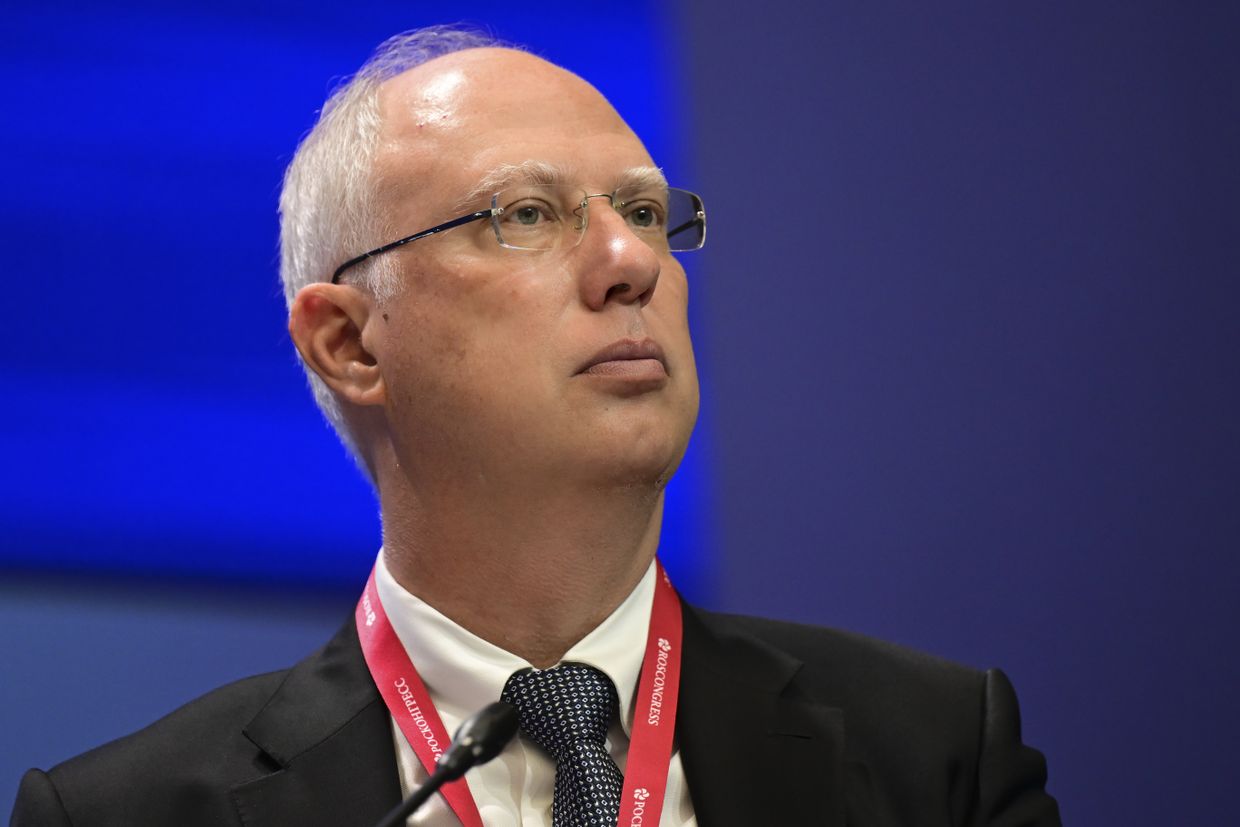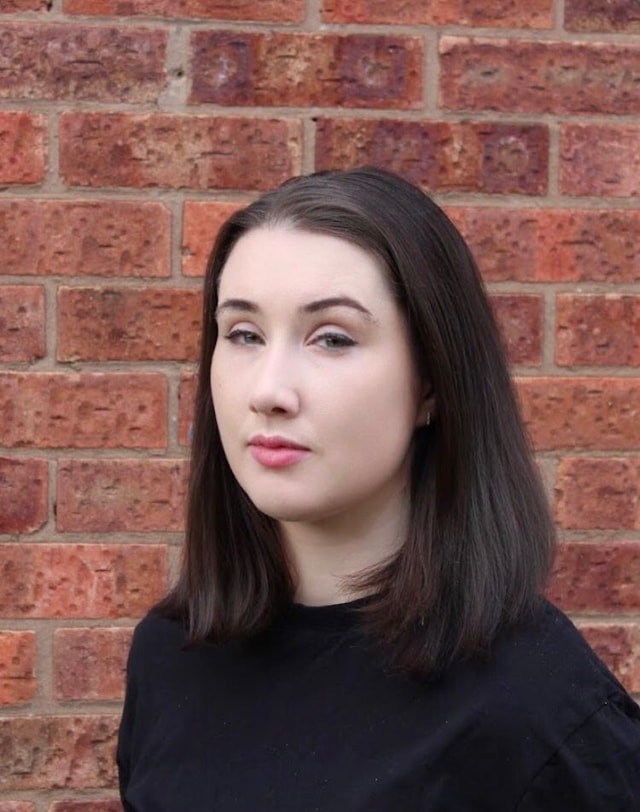All the president's men: Inside the closed world of Putin's key advisors

Vladimir Putin chairs a meeting on the economic issues via a video link at the Novo-Ogaryovo state residence outside Moscow, Russia on April 11, 2023. (Gavriil Grigorov / Sputnik / AFP)
In Russian politics, all eyes are focused on one man: Russian President Vladimir Putin. But as ceasefire talks continue, the world's attention has also been drawn to those sent forward to do the Kremlin's bidding — whether at the negotiating table in Saudi Arabia or in the backrooms of Washington D.C.
Foreign Minister Sergey Lavrov and former Russian Ambassador to the U.S. Yuri Ushankov, leading the talks in Saudi Arabia, are both savvy political operators who possess the Kremlin's trust and confidence.
Meanwhile, Russia's Direct Investment Fund CEO Kirill Dmitriev had little public spotlight prior to being catapulted to holding talks with U.S. President Donald Trump's envoys in Washington.
All of these men have access to the Kremlin's most exclusive power networks. These are groups based on personal relationships and proximity to Putin, bound with a tightly woven worldview. But that does not mean Putin's court is peaceful or effective.

Russian news outlet Agenstvo reported in early April that when Lavrov and Ushankov arrived in Saudi Arabia for talks on Feb. 18, they were surprised to see that they were not the only Russian negotiating team. Dmitriev and his team were also present and seen talking with other officials — although Dmitriev was ultimately not given a seat at the table.
While Russia's elites are keen to mimic Putin's ideology, they are ultimately forced to play a political guessing game and are prone to squabble among themselves. This Kremlin can exploit this — and should peace talks fail due to a lack of Russian commitment, there would be plenty of available scapegoats.
"If different sides dislike each other, they'll constantly try to outdo one another, believing that they've read these signals of Putin. That gives Putin plausible deniability (if something goes wrong)," says Stephen Hall, assistant professor at the University of Bath.
"It's divide and conquer."
Different but the same
The men surrounding Putin can be broadly split into several key groups. Most infamous are the so-called siloviki: men with a background in either the military or the state security services.
These include officials such as Alexander Bortnikov, director of Russia's Federal Security Service (FSB), Sergey Naryshkin, the head of the country's Foreign Intelligence Service, and Putin's aide Nikolai Patrushev, who led the FSB prior to Bortnikov.
Most of those at the top have been close to Putin for a number of years and, in many cases, first met the president when he was still working for the Soviet Union's state security service, the KGB.
"They're concerned about securitization and see Russia as a besieged fortress," says Mikhail Suslov, an associate professor at the University of Copenhagen. "I think this is something which sits so deeply in their mind that it becomes their second nature."
Then, there are the technocrats: men with a background in finance or business who are often more keen to maintain stability and the status quo. Prime Minister Mikhail Mishustin, best known for his under-the-radar presence and his long-term role managing Russia's tax system, falls into this category.
"What they care about is a stable and straightforward international world order that provides them with the possibility to stay in power for as long as possible. They're rational: they're not religious, they're not about security, they're about doing business as usual," says Suslov.

But these distinctions only go so far. Putin's inner circle is a uniform group. With the exception of a few figures such as Valentina Matviyenko, chairwoman of Russia's Federation Council (Senate), and Central Bank Chief Elvira Nabiullina — neither of whom is considered a true insider — they are almost exclusively men, and most are close to the president in age.
More importantly, Putin's inner circle adheres to a similar conservative, anti-Western worldview. Rather than simply rejecting or hating the West, they believe that the West has cheated Russia, says Suslov.
"That's a feeling of injustice, the feeling that the West has treated Russia unfairly, that is absolutely common," says Suslov. "To a very large extent, that drives their perception of the world and their decisions."
In this warped reality, Russia has the right to all post-Soviet republics, among them Ukraine, which is seen as a battleground between Russia and the West.
These views are a direct projection of Putin's own speeches and writings, while Putin himself also cherry picks similar phrases and sentiments from the writings of those close to him."
Kremlin technocrats in particular are more likely to see that Russia needs more connection with the West and the world at large to fuel areas such as the country's tech industry, says Hall.
But while men like Mishustin are more dove-like in their outlook, they don't necessarily have the president's ear. And in Moscow, ultimately, it is only proximity to the president that truly matters.
"In that close group, I think we're seeing hawkish hawks and hawkish doves rather than any real doves right now," says Hall.
A disappearing circle
The result is that the Russian president is surrounded by a small group of people who reflect his own life experiences and ideology — and are highly motivated not to challenge that worldview and lose the president's favor.
"(People close to Putin) don't want to give him information that doesn't fit into his perception of reality. That seems to have been quite clear for quite a long time," says Hall. "You don't go to the tsar with bad news. You don't tell him what he doesn't want to hear."
This dynamic leaves Russia's most powerful men trapped in a feedback loop. Putin is not a weak or nameless dictator who can be bent to the whims and opinions of his advisors. Neither is Putin's inner circle incapable of forming opinions of their own: when they tell the Russian state press that Western powers are conspiring to bring Russia down, it is likely they believe it.

But, with nothing and no one to question the status quo, these two groups continually reinforce each other's beliefs.
"This is a mutual, two-way process. Putin is definitely not a political thinker. He's tapping all the time into a pretty fixed set of intellectuals around him," says Suslov. "At the same time, people around him are trying to guess what Putin wants them to say."
This dynamic also pushes each group towards embracing ever more extreme declarations and viewpoints as courtiers battle to grab the president's attention. Anti-Western sentiments spill easily into the realm of conspiracy theories. Bortnikov, for example, has publicly and repeatedly accused the West of trying to destabilize Russia, including claims that the United States aided the terrorists who attacked Moscow's Crocus City Hall in March 2024, killing 145.
"When Putin makes a decision that tends to be final — but like any leader, he's always open to being pushed towards a certain point," says Hall. "So you come up with something that fits with his narrative, and you get the ear of the tsar for a while."
New blood
With little in the way of fresh blood on the horizon and an increasingly small number of trusted confidantes, political turnover is very low.
Each promotion or fall from grace is in itself a major event.
Patrushev, a long-term Putin ally, lost his position as secretary of Russia's Security Council in a seeming fall from grace during a cabinet reshuffle in May 2024. He now heads the newly formed Maritime Board of Russia, a position lacking the clout and prestige of his former role.
Meanwhile, the rise of Dmitriev, who has found himself at the heart of talks with the United States, is another tectonic shift and a signal that the Kremlin is open to bringing in newer, younger technocrats.
The 49-year-old investment banker is well-versed in social media and Trump-speak. He decries media outlets as "pushing fake, negative narratives about Russia to undermine peace" and is excruciatingly unsubtle in his heavy-handed praise for Donald Trump.

Yet even newcomers to the ranks of the elite come from tried-and-tested channels. Dmitriev's star truly began to rise when he married his wife, Natalia Popova — a close friend of Putin's daughter, Katerina Tikhonova. While Dmitriev may have made his mark in finance and technology, personal relationships and patronage truly sealed the deal.
New faces are remarkable in this closed world, but wider innovation remains lacking. Other upcomers are also treading familiar paths.
Forty-two-year-old Maxim Oreshkin, deputy chief of staff of the Presidential Executive Office, earned his stripes like a fleet of technocrats before him in the Russian Finance Ministry. Alexey Drobinin, a rising star in Russia's Foreign Ministry and director of Foreign Policy Planning, is making his name known with screeds on beloved Kremlin topics such as traditional values and "multipolar worlds."
"They are trying to bring a bit of new blood into the Kremlin. The Kremlin think tanks around the Valdai Club, for example, have a whole galaxy of people who are around the age of 40 and slightly older," Suslov says.
"This is the beginning of the new political elite who will probably dominate the Russian international relations, and especially expert think tanks, in the years to come."
A disunited front
For negotiators, this closed Kremlin echo chamber has consequences. It adds uncertainty as to which information or propositions may make their way back to Putin himself.
"I don't necessarily think there is an awful lot of information leaking its way up to Putin because how can it?" says Hall.
"We've seen enough times that Putin believes that Russia is the third biggest economy in the world. We've seen that he believes that Ukrainian deaths are astronomical, but Russian deaths are very few. I don't think he's receiving the information. It would make it very hard to see a viable reality in terms of negotiation."
Yet such concerns also assume that the Kremlin is genuinely looking for peace.
The uniform ideology in Moscow corridors or power should ensure a united front at the negotiating table. But reports that different Russian negotiators have been given different information or even pitted against each other suggest that there are no intentions of seriously using such a front.











